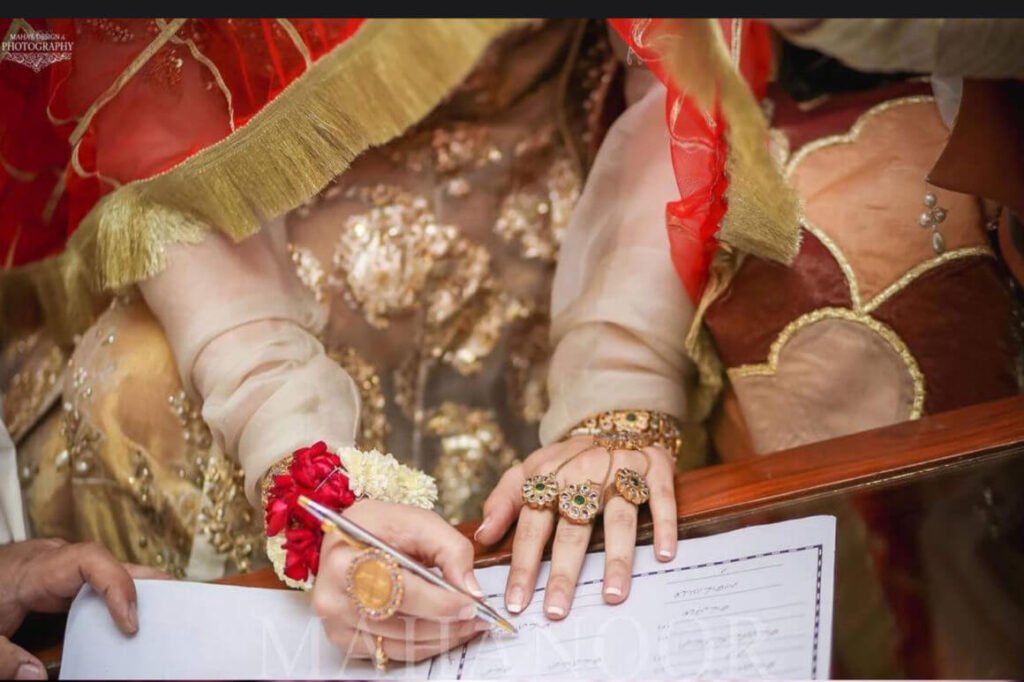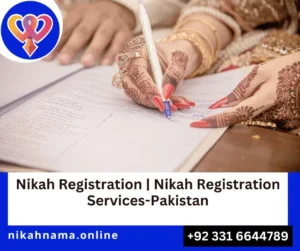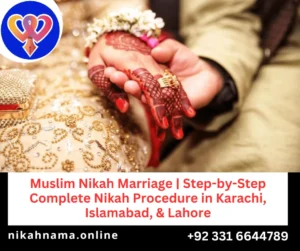
Nikah and Dower
Dower Money, or "Mahr" is an Essential Component of Islamic Marriage
Dower money, or “Mahr” in Arabic, is an essential component of Islamic marriage, also known as Nikah. According to Islamic Shari’a, dower money is the amount of money or property given by the husband to his wife as a sign of his commitment and responsibility towards her. This practice is not only specific to Islamic marriages but is also observed in other cultures and religions as a token of affection and respect.
Dower Money is an Obligatory Requirement For Nikah
Dower money is considered an obligatory requirement in Islamic marriages and is a sign of the husband’s financial stability and willingness to support his wife. The amount of dower money is mutually agreed upon by the husband and wife before the marriage contract is signed. The Quran explicitly states that dower money should be given willingly and without any conditions or obligations. This means that the husband cannot force the wife to agree to a certain amount of dower money or use it as a bargaining chip.
Dower Money Can Be Paid in Cash or Kind
Dower money can be paid in cash, property, or any other valuable asset. It is entirely up to the husband and wife to agree on the form of payment. However, the amount of dower money must be reasonable and affordable for the husband. If the husband is unable to pay the agreed amount, he must seek a reduction or deferment from his wife. If the wife agrees to a reduction or deferment, it must be done without any coercion or pressure.
Dower Money Shows Financial Stability of the Husband
Dower money serves several important purposes in Islamic marriages. Firstly, it ensures that the husband is financially responsible for his wife and is committed to providing for her needs. Secondly, it acts as a form of security for the wife in case of divorce or the husband’s death. The dower money is considered the wife’s property, and she has complete control over it. If the marriage ends in divorce or the husband dies, the wife is entitled to the dower money as a form of financial support.
Dower Money is an Integral Part of Muslim Marriage
In short, dower money is an integral part of Islamic marriage and is designed to ensure the financial stability and security of the wife. It is a sign of the husband’s commitment and responsibility towards his wife and is an important aspect of Islamic Shari’a. The amount of dower money should be mutually agreed upon by the husband and wife, and it should be paid willingly and without any conditions or obligations.
Consideration of Dower is Necessarily Required For Nikah According to Islamic Shari'a
Marriage-Nikah-Dower in Muslim Nikah Nama Form-Mahr/Haq Mehar-Dower Meaning: Dower is a necessary requirement of every valid Muslim marriage. In the event of a marriage contract, the husband pays the wife a sum of money. Consideration of marriage is commonly used to describe it. In Pakistan, it is a mandatory obligation and must be fixed at the time of marriage. There is no particular amount of money or other payment at the time of marriage, even if it is The date of marriage is not fixed. Due to the existence of the marriage contract, the woman’s right to claim dower is unaffected by the inclusion of property in the Nikah Nama.
Dower can be Paid Later By Mutual Consent
Dower can be paid later by mutual agreement. In the event that the parties are not in agreement, the wife can then go to court to have a court determine an amount that takes into consideration such things as the husband’s income, social standing, etc., as well as the wife’s social standing. She can still claim the right even though the amount is not fixed at nikah.

Dower may include, both, Moveable and Immoveable Property/Properties
Nikah Nama’s first column describes Mahar as raqam (cash), but dowers may include, both, moveable and immovable property. Dower is allowed to be recorded in any of the four columns provided for its recording, including cash and/or property. It is possible to fix the debt later on, but if the husband fails to do what he is supposed to do, the wife has the right to force him to pay.
Dower can be paid promptly or deferred depending on its payment method.
The wife generally goes to court to ask for her dower to be paid, but we have not seen case law specifically pertaining to this, so we cannot say how often such claims occur. During the nikah, the judge would be notified that no amount was specified, and the court would then set an amount that she would be entitled to claim once the court has determined an amount.
Dower can be paid promptly or deferred depending on its payment method. It is necessary to pay the prompt part of the dower as soon as possible; however, the deferred dower can be paid at the request of the wife within a specified period of time. The Mahar is called indul-talab when it is contingent on the wife’s request to pay the deferred dower.
Misconception Regarding Prompt Dower
There is a misconception that prompt dower equates to indul-talab. The statement is incorrect. After completion of the Nikah, prompt dower becomes due.
If When no time period is specified as to deferred dower, it becomes payable either upon the termination of the Nikah (if this right is retained) or upon the husband’s death.
Mahar is a debt that the husband is responsible for repaying, and if it is not paid in his lifetime, it is among the first things to be paid from his estate, unless the wife waives that right.
Inheritance can be claimed by the heirs of a deceased woman’s unpaid dower.
The nikah registrar in Punjab is currently under an obligation to ensure that all columns are filled out
Due to the lack of information in the Nikah Nama about whether the Mahar should be paid immediately or delayed, the judge will assume that it should be paid immediately. It would be incorrect to assume that the dower is timely and immediately payable to the bride if she went to court and claimed that her dower hadn’t been paid until now. However, the court will assume that since the column in the nikah nama has been left empty at the time of the nikah, it is prompt and immediately payable to the bride. The nikah registrar in Punjab is currently under an obligation to ensure that all columns are filled out and that all questions are answered as a result of the 2015 amendments to the law, or else he will be held liable.

Dower is considered the woman's property
Dower is considered the woman’s property since it immediately paid to her. One must examine the conditions for the deferment and the continuation of the marriage if it is deferred. Divorce leads to the payment of the Mahar.
The wife has the exclusive right upon Mahar
Only the wife has the right upon Mahar. When exchange marriages are prevalent in an area, it has been observed that there is a perception that the woman is not entitled to Mahar, and the same is not agreed upon at the time of the Nikah.
Regardless of whether or not the right to claim dower is fixed at the time of the marriage, the right to claim it remains unaffected. When this occurs, the wife should be able to claim Mahar, and if it is not settled or paid by the husband, she should be able to approach the Family Court for redress, where the amount will be determined based on factors like her social standing, her salary, and her ownership of some assets.
It must be determined and agreed upon by the parties in order to a Muslim marriage to be valid. This has been clarified in superior court judgments.
Punishment for not recording correct informations
If the dower amount and other information is not correctly recorded in the nikah nama, the nikah registrar may be liable for one month of imprisonment and a fine of 25,000/- under the amended section 5 of the Muslim Family Law Ordinance (only in Punjab). It is unlikely that the nikah registrar would be held responsible if no amount or deferred payment has been agreed upon.


